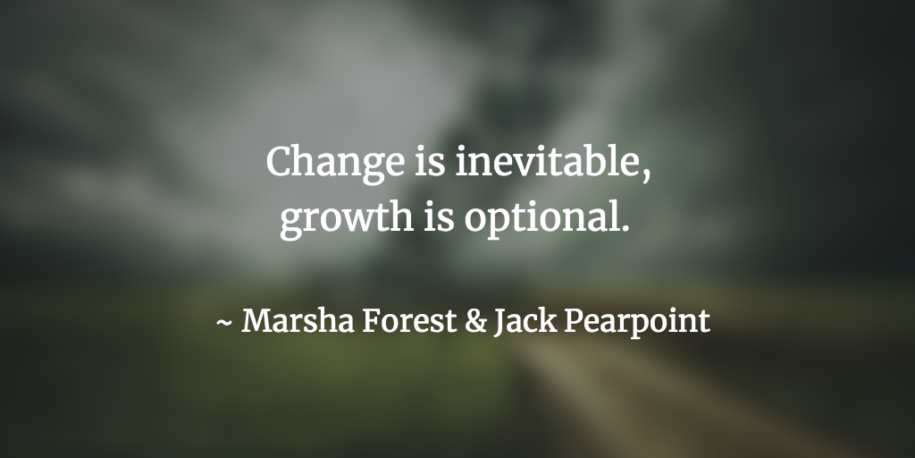You have more power to achieve the changes you are after than you think. Not as much as you might like. But more than you realize.
The trick is to claim it. And not let the boundaries of that power be defined by others, particularly government.
How much should you claim?
As much as you need to accomplish your task. You will know that you have reached the frontiers of your power when the reaction is – “our statutory responsibilities won’t allow it,” “this has never been done before,” “don’t worry we’re creating an advisory process.” Those statements should be treated as signals to keep pushing. Respectfully but with confidence.
Here’s a current example ripe for power claiming. In June the federal government proposed an Accessible Canada Act. It emerged from what the government described as the most inclusive and accessible consultations with more than 6000 Canadians. And of course decades of lobbying by advocates with a disability, particularly David Lepofsky.
The act is not yet law and the biggest mistake advocates can make is to hang back and wait. Until the proposed Act is introduced into the House in the fall. Until it is passed by the House and Senate. Until the federal government launches an implementation process.
Instead people with disabilities should picture themselves in charge of implementation. Not as advisors or monitors to the process but as leaders directing it. Starting now. This requires a shift in mindset from “nothing about us, without us” to “what’s about us, is up to us.”
What we know about implementation is that the capacity of the system seldom matches the bold intentions embedded in legislation, strategic plans or new programs. This is not to suggest there aren’t good people in government. There certainly are. However it is a recognition that the existing structure is old, embedded with yesterday’s assumptions and tends to default to the status quo.
The proposed Accessible Canada Act is the equivalent of assembling the tools and construction material to build a bridge to a more inclusive world. The bridge has yet to be built. The only way a structure that ambitious can be built is for people with disabilities to take the lead.
Here are seven approaches to claiming power that I’ve had some success with:
- “Negotiate” a Joint Working group (JWG) consisting of equal numbers of people from the disability world and government representatives to oversee implementation. Decisions of the JWG must be by consensus. The working group must have the authority and resources to implement.
- Establish an Accessibility Development Unit under the auspices of the JWG to work out the inevitable kinks that happen during implementation.
- Create an Ability Innovation Fund to invest directly in people with disabilities and their families as accessibility problem solvers. Chances are there are hundreds of solutions just waiting to be spread.
- Host a federal-provincial-territorial conference. While the purpose of the bill is to make Canada barrier-free in areas under federal jurisdiction, accessibility doesn’t stop at those boundaries. The disability community has a better chance of convening such a gathering than the feds do. Especially in the current federal-provincial-territorial climate.
- Appoint a team of independent auditors with a mandate to report from the field on whether the new legislation is making a practical difference to individuals with a disability.
- Create an on-line forum to enable people with a disability to give regular feedback to the JWG on strategic priorities, to gauge consensus on tough implementation choices and to propose helpful solutions. See ethelo.org for lots of great examples.
- Invest in artists with disabilities. Cultural awareness is a key part of the proposed legislation. This cannot be accomplished without artists.
In the words of former Prime Minister, Kim Campbell, “Look, power exists. Someone has to have it. If you would exercise it ethically, why not you?” Besides it is a lot more fun than waiting.
NOTE: An early version of this post was recently published as “The dawning of a new age for persons with disabilities” in The Toronto Star. A longer version is being distributed by Evidencenetwork.ca to newspapers across the country.
EH!
Change is inevitable, growth is optional. ~ Marsha Forest & Jack Pearpoint
Musical accompaniment this post is We’re Not Gonna Take It by rock star and humanitarian Biff Naked. Isn’t she powerful? Buy her music here.
10 good reasons why people who are poor should be in charge of ending poverty
Making Peace with Fear, Katheren Szabo
The World Needs More Peace Makers not Social Innovators
You Don’t Need to Start Another Movement
Visit socialchangequotes.com to browse Canada’s largest collection of quotes about social change, curated by Al Etmanski.

One Comment
Paul Gilbert
Gov’t is failing to ensure the UN Convention on the rights of people with disabilities has the force of law in Canada (The point of the legislation) https://www.linkedin.com/pulse/govt-failing-ensure-un-convention-rights-people-has-bc/